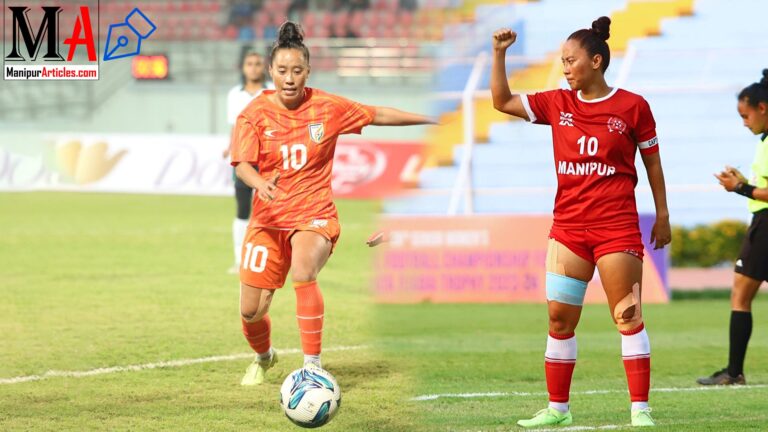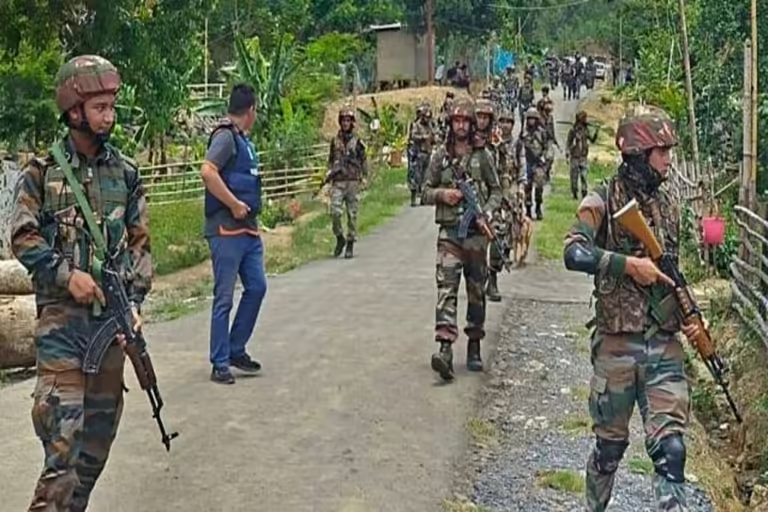COCOMI Rejects Delhi Peace Talks, Demands Abrogation of Suspension of Operations Agreement
The Coordinating Committee on Manipur Integrity (COCOMI) has firmly opposed the recent peace talks facilitated by the Ministry of Home Affairs in Delhi, labeling them as a “stage-managed exercise” intended to support a misleading narrative presented by Union Home Minister Amit Shah. COCOMI asserts that the Government of India is misrepresenting the Manipur conflict as merely an ethnic dispute between the Meetei and Kuki communities, thereby overlooking deeper issues such as alleged state-sponsored proxy wars involving Chin-Kuki narco-terrorist networks. The organization demands the revocation of the Suspension of Operations (SoO) Agreement, citing concerns over foreign-origin armed mercenaries operating under its guise. COCOMI emphasizes that genuine peace talks cannot occur without first establishing a terror-free environment and insists on direct government engagement with SoO leadership, bypassing symbolic civilian proxies.
Unpacking COCOMI’s Stance on the Delhi Peace Talks and the SoO Agreement
In recent developments, the Coordinating Committee on Manipur Integrity (COCOMI) has taken a resolute stand against the peace talks organized by the Ministry of Home Affairs in Delhi. This move has sparked discussions and debates across various platforms. Let’s delve deeper into the nuances of COCOMI’s position, the implications of the Suspension of Operations (SoO) Agreement, and the broader context of the Manipur conflict.
Understanding COCOMI’s Perspective
COCOMI has been vocal about its dissatisfaction with the central government’s approach to resolving the Manipur conflict. The organization perceives the recent peace talks as orchestrated events designed to bolster a specific narrative. According to COCOMI, this narrative simplifies the conflict to an ethnic tussle between the Meetei and Kuki communities, thereby overshadowing more intricate and systemic issues. India Today NE+1Wikipedia+1
The Crux of the Conflict: Beyond Ethnicity
While ethnic tensions are palpable, COCOMI emphasizes that the root causes of the unrest are more profound. They point towards alleged state-sponsored proxy wars and the involvement of Chin-Kuki narco-terrorist networks as significant contributors to the instability in Manipur. By focusing solely on ethnic dimensions, there’s a risk of neglecting these critical factors that perpetuate the conflict. India Today NE
The Suspension of Operations (SoO) Agreement: A Double-Edged Sword?
Established in 2005, the SoO Agreement was intended to be a ceasefire arrangement between the government and various militant groups. However, COCOMI raises concerns about its effectiveness and unintended consequences. They allege that the agreement has inadvertently provided a safe haven for foreign-origin armed mercenaries, allowing them to operate with impunity under its protection. This situation, according to COCOMI, undermines both peace and democratic governance in the region. Wikipedia+1India Today NE+1India Today NE
COCOMI’s Demands: Charting a Path Forward
In light of the current scenario, COCOMI has outlined a series of demands aimed at establishing a foundation for genuine peace:
- Strict Enforcement of the Rule of Law: Ensuring that laws are applied uniformly across Manipur, leaving no room for favoritism or bias.India Today NE
- Neutralization of Armed Groups: Particularly targeting those operating under the SoO in hill areas, to prevent further militarization.India Today NE
- Prosecution of Militants: Holding those involved in territorial occupations and highway blockades accountable for their actions.India Today NE
- Revocation of the SoO Agreement: Dismantling militant strongholds that have been fortified under the guise of this agreement.India Today NE
- Restoration of Free Movement: Ensuring that all citizens can move freely and safely throughout the state.
- Accountability Measures: Addressing individuals and groups that have been resistant to peace efforts, including those who have disregarded initiatives from the Home Minister and Governor.India Today NE
- Recognition of Core Conflict Drivers: Acknowledging and addressing issues like illegal immigration, narco-terrorism, and separatist ideologies that fuel the unrest.India Today NE
- Direct Government Engagement: Encouraging the government to engage directly with SoO leadership, rather than relying on symbolic civilian intermediaries. India Today NE
The Role of Civil Society in Peace Processes
COCOMI underscores a crucial point: while civil society organizations play an essential role in community mobilization and advocacy, they lack the authority and means to disarm militants or enforce laws. Therefore, the onus of establishing a terror-free environment and initiating genuine peace talks rests squarely on the shoulders of the Government of India. India Today NE
Implications for Manipur’s Future
The current impasse presents both challenges and opportunities. Addressing COCOMI’s concerns requires a nuanced approach that goes beyond surface-level solutions. It calls for a comprehensive strategy that tackles the multifaceted issues at play, ensuring that all stakeholders feel heard and that their grievances are addressed.
Conclusion
COCOMI’s rejection of the Delhi peace talks and its call for the abrogation of the SoO Agreement highlight the complexities of the Manipur conflict. It serves as a reminder that genuine peace cannot be achieved through superficial engagements or by sidelining critical issues. A concerted effort, marked by sincerity and a commitment to addressing root causes, is imperative for lasting peace in Manipur.
FAQs
- What is the main reason behind Cocomi’s rejection of the Delhi peace talks?
Cocomi believes that the peace talks do not adequately represent local issues and fail to address the historical and socio-political complexities of Manipur, particularly concerning the Special Operations Order (SOO). - Why is the abrogation of the SOO so important to Manipur’s locals?
The SOO is seen as an outdated policy that restricts local autonomy and perpetuates external control over Manipur. Abrogating it is viewed as a step toward reclaiming local governance and ensuring that policies reflect the unique needs of the community. - How have local voices influenced the political discourse in Manipur?
Local voices, particularly those from groups like Cocomi, have significantly shaped the discourse by highlighting the disconnect between central policies and local realities. Their persistent demands for meaningful representation have brought attention to long-standing grievances and called for policy reforms. - What steps can be taken to improve the situation in Manipur?
Enhancing dialogue between the central government and local communities, revisiting and reforming outdated policies, empowering local leaders, and establishing regular review mechanisms are crucial steps toward a more inclusive and harmonious future. - How does the situation in Manipur reflect broader global trends in local governance?
Similar to other regions worldwide where local communities seek greater autonomy, Manipur’s struggle underscores a universal demand for governance that respects local identities and addresses historical grievances through inclusive, collaborative policy-making.


